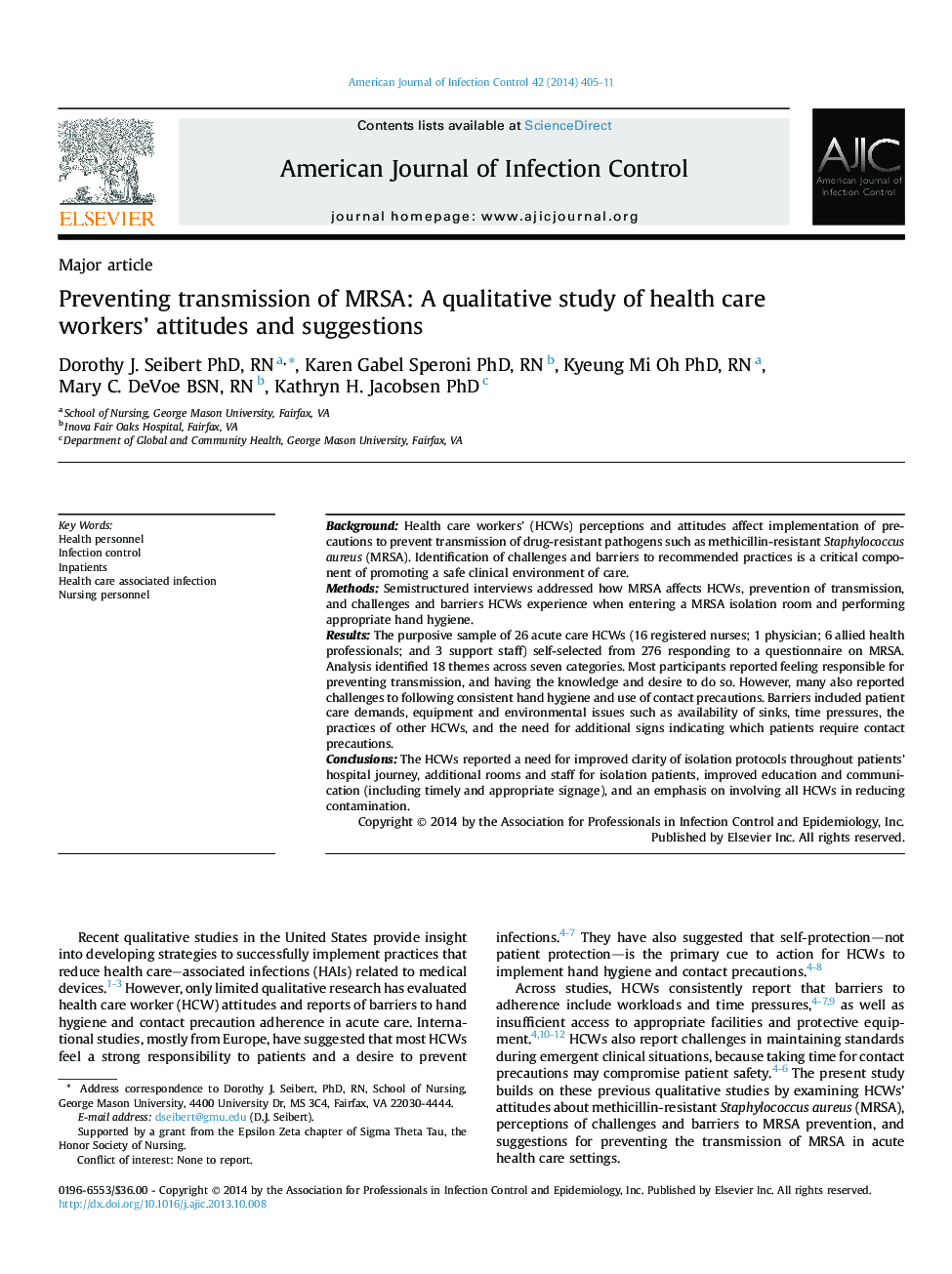| Article ID | Journal | Published Year | Pages | File Type |
|---|---|---|---|---|
| 2639311 | American Journal of Infection Control | 2014 | 7 Pages |
BackgroundHealth care workers’ (HCWs) perceptions and attitudes affect implementation of precautions to prevent transmission of drug-resistant pathogens such as methicillin-resistant Staphylococcus aureus (MRSA). Identification of challenges and barriers to recommended practices is a critical component of promoting a safe clinical environment of care.MethodsSemistructured interviews addressed how MRSA affects HCWs, prevention of transmission, and challenges and barriers HCWs experience when entering a MRSA isolation room and performing appropriate hand hygiene.ResultsThe purposive sample of 26 acute care HCWs (16 registered nurses; 1 physician; 6 allied health professionals; and 3 support staff) self-selected from 276 responding to a questionnaire on MRSA. Analysis identified 18 themes across seven categories. Most participants reported feeling responsible for preventing transmission, and having the knowledge and desire to do so. However, many also reported challenges to following consistent hand hygiene and use of contact precautions. Barriers included patient care demands, equipment and environmental issues such as availability of sinks, time pressures, the practices of other HCWs, and the need for additional signs indicating which patients require contact precautions.ConclusionsThe HCWs reported a need for improved clarity of isolation protocols throughout patients’ hospital journey, additional rooms and staff for isolation patients, improved education and communication (including timely and appropriate signage), and an emphasis on involving all HCWs in reducing contamination.
